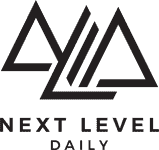
The Next Level Daily planner was designed from the very start to be different. As a full-focus planner, it was always intended to be more than just a daily calendar. We believe it should work for you, not the other way around.
One of the biggest things that stands out to us is just how many people give up on daily planners because using one seems like more work than it's worth. People buy planners off-the-shelf only to discover that using them make things less productive and efficient.
We aim to change that with a full-focus planner flexible enough to allow you to use it in whatever way you deem best. We know that you are more likely to use a planner that is conducive to the way you think, the way you organize your life, and the way you get things done.
More About Full Focus Planning
One of the more common questions we hear is this: what is full focus planning? Full focus planning is a concept based on using a paper planner rather than going digital. There is nothing wrong with digital daily planners if they work for you. But for a lot of people, digital tools invite distraction far too easily.
We are inundated with digital messages every day, all day long. From emails to push notifications and digital ads popping up on our phones, the messages never stop. To avoid distraction, our brains have learned to tune them out. So now it is easy to forget about that digital daily planner.
A full-focus planner is a paper planner that is not so easy to ignore. When you sit down with a paper planner to fill in your goals, tasks, etc., you are fully focused on what you are doing. Not only that, but you’re also not being inundated with more digital messages while you are working in a paper planner. You can put your entire focus on what you're doing in the moment.
Create a Plan by Asking Questions
From our perspective, the best kind of daily planner is one that is as flexible as possible. It is one that gives the user plenty of freedom to structure pages in whatever way makes sense. Additional pages can be added as needed. But to make this sort of planner work, it helps to create a plan for how you are going to use it.
How do you do that? By asking yourself some questions and then paying close attention to your answers. Ask yourself:
- Why am I using a planner? – Your intentions provide the outline for everything else. You need to know what you're trying to accomplish.
- What pages do I need? – A flexible planner lets you establish different pages for different purposes. So ask yourself what pages you will need to plan your days and weeks.
- How will I use my planner? – This question is more about function. For example, if you'll be taking your planner with you wherever you go, you will probably want something that is as small and portable as possible.
- Do I want to include habit trackers? – Many people include habit trackers in their daily planners. They track everything from daily sleep to eating habits and water intake.
As you can see from the questions, flexibility is the key for so many people who normally give up on daily planners. That is the last thing we want for you. If you have committed to full-focus daily planning, we want you to have a planner that works for you and not the other way around. That's the way it should be, right?
